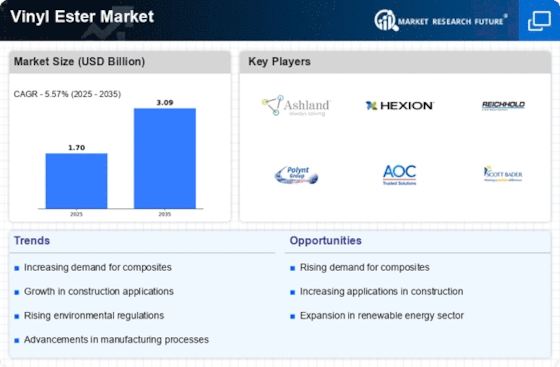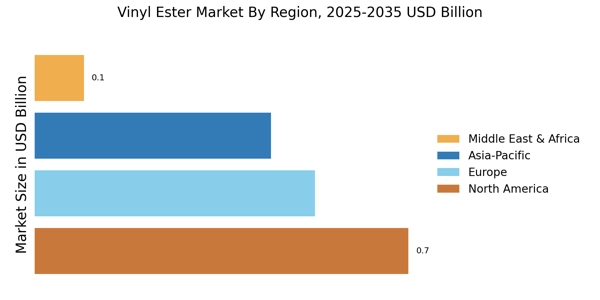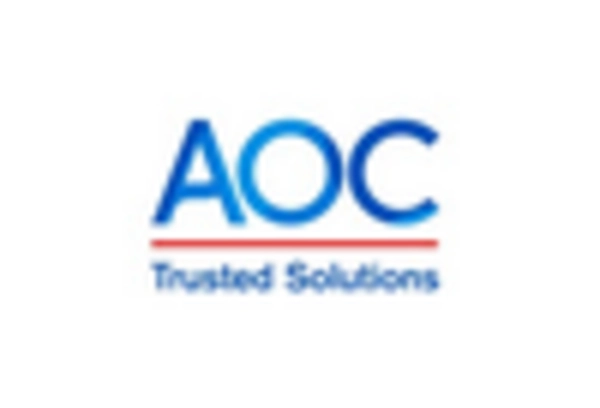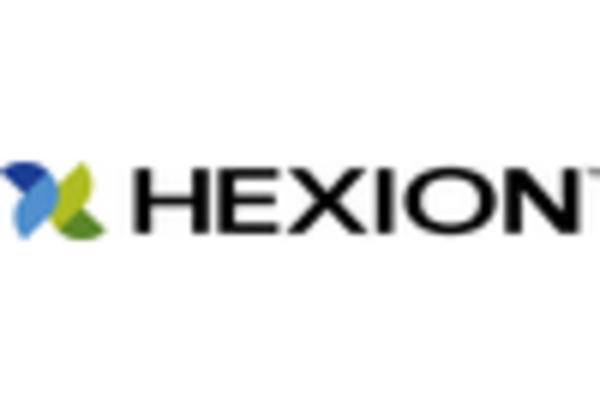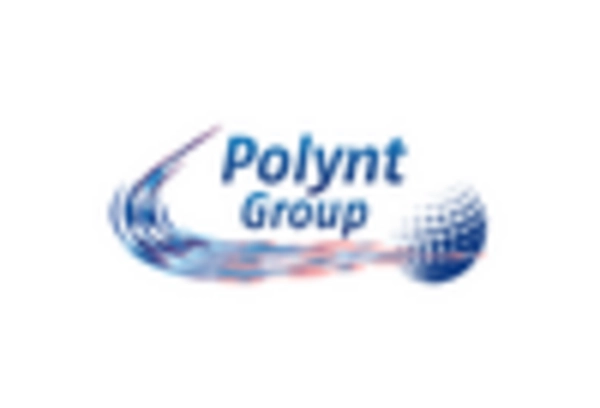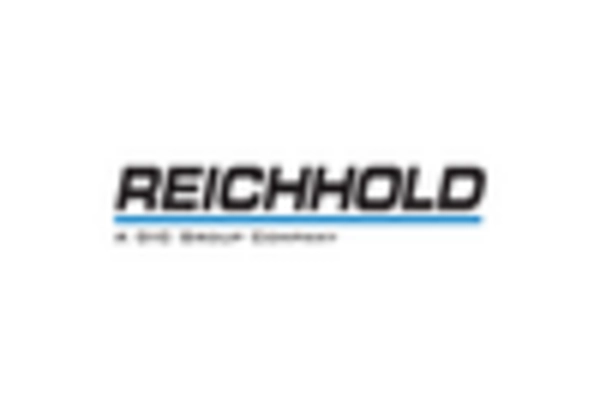Expansion in Marine Applications
The Vinyl Ester Market is witnessing a robust expansion in marine applications, driven by the increasing demand for lightweight and durable materials in boat manufacturing and repair. Vinyl esters are particularly valued in this sector for their excellent resistance to water and chemicals, which enhances the longevity of marine vessels. The marine industry is expected to grow at a rate of around 4% annually, further propelling the need for vinyl ester resins. As boat manufacturers and repair facilities prioritize performance and durability, the Vinyl Ester Market is likely to see a corresponding increase in product offerings tailored to meet these specific requirements.
Growth in Renewable Energy Sector
The Vinyl Ester Market is poised for growth due to the rising investments in the renewable energy sector, particularly in wind energy. Vinyl esters are increasingly utilized in the production of wind turbine blades, where their lightweight and strong properties are essential for efficiency and performance. The renewable energy market is projected to grow significantly, with wind energy expected to account for a larger share of the energy mix. This trend suggests that the Vinyl Ester Market could see heightened demand as manufacturers seek materials that can withstand the rigors of outdoor environments while maintaining structural integrity.
Rising Demand in Construction Sector
The Vinyl Ester Market is experiencing a notable surge in demand, particularly from the construction sector. This growth is attributed to the increasing use of vinyl ester resins in applications such as pipes, tanks, and structural components. The construction industry is projected to expand at a compound annual growth rate of approximately 5.5% over the next few years, which is likely to drive the consumption of vinyl esters. These materials are favored for their superior corrosion resistance and mechanical properties, making them ideal for harsh environments. As infrastructure projects proliferate, the Vinyl Ester Market stands to benefit significantly from this trend, as manufacturers seek durable and reliable materials to meet the evolving needs of construction.
Technological Innovations in Manufacturing
Technological advancements in the manufacturing processes of vinyl esters are contributing to the growth of the Vinyl Ester Market. Innovations such as improved polymerization techniques and the development of bio-based vinyl esters are enhancing product performance and sustainability. These advancements not only improve the mechanical properties of vinyl esters but also reduce environmental impact, aligning with the increasing focus on sustainability in various industries. As manufacturers adopt these new technologies, the Vinyl Ester Market is likely to experience a shift towards more efficient production methods, potentially leading to lower costs and increased market penetration.
Increasing Regulatory Support for Composite Materials
The Vinyl Ester Market is benefiting from increasing regulatory support for the use of composite materials across various sectors. Governments are promoting the adoption of advanced materials that offer better performance and lower environmental impact. This regulatory environment is encouraging industries such as automotive, aerospace, and construction to incorporate vinyl esters into their products. As regulations become more favorable towards sustainable materials, the Vinyl Ester Market is expected to see a rise in demand, as companies seek to comply with these standards while enhancing product performance.


